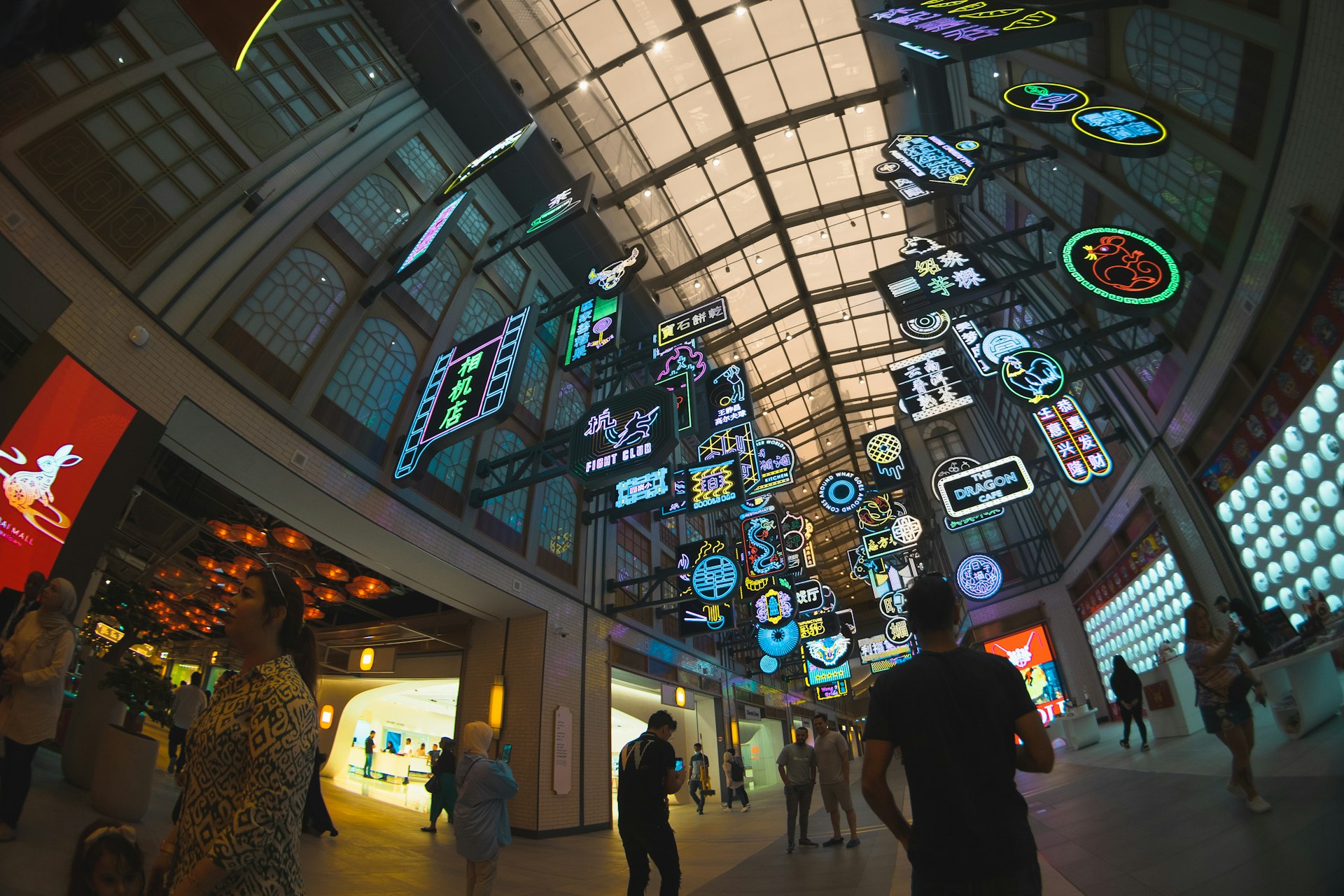How B2B Influencer Marketing Strategies Are Shaping the Future of Lead Generation

Photo by S saeed on Unsplash
The Evolution of B2B Influencer Marketing
B2B influencer marketing has rapidly matured from a niche experiment to a mainstream, high-ROI channel for lead generation and sales. As we move into 2025, brands are formalizing influencer relationships, allocating dedicated budgets, and leveraging both technology and authentic voices to reach targeted business audiences. The adoption rate is soaring-81% of B2B marketers reported dedicated influencer marketing budgets in 2024, with over half planning to increase investment in 2025 [3] . These investments reflect a shift from basic awareness campaigns to strategies designed to drive measurable business outcomes, such as qualified leads and pipeline growth.
Key Trends Shaping the Future
1. Integration of AI and Personalization
Artificial intelligence is transforming how B2B marketers identify, activate, and measure influencer partnerships. AI-driven tools now help in selecting influencers whose expertise and audience align closely with a brand’s goals, as well as in personalizing content for various buyer personas. According to recent benchmarks, 66.4% of marketers report improved campaign outcomes through AI integration, while 73% believe influencer marketing will be largely automated by AI in the near future [2] . However, excessive reliance on automation risks generic messaging, making human oversight and creativity critical for successful campaigns [1] .
To implement AI-driven influencer strategies, start by researching AI-powered influencer platforms that provide real-time analytics, sentiment analysis, and automated performance reports. Use these insights to segment your audience, match with relevant influencers, and tailor messaging for each vertical or decision-maker profile. Monitor campaign results closely and adjust content strategies to maintain authenticity and engagement.
2. Emphasis on Long-Term, Expertise-Driven Partnerships
Short-term influencer campaigns are giving way to deeper, relationship-focused approaches. Brands are shifting to long-term partnerships with industry experts, analysts, and practitioners whose credibility can directly impact purchasing decisions. These relationships foster trust, enable co-creation of thought leadership content, and deliver more consistent results. In one survey, 47% of marketers are prioritizing longer-term influencer relationships to maximize ROI and buyer trust [2] .
For practical implementation, identify influencers with proven expertise in your sector-such as keynote speakers, published authors, or respected analysts. Engage them in collaborative initiatives like regular thought leadership panels, guest content on your channels, or co-hosted webinars. Establish clear KPIs tied to lead generation and pipeline contribution, and ensure ongoing communication to align content with evolving business goals.
3. Platform-Specific Strategies: LinkedIn, YouTube, and Beyond
LinkedIn continues to dominate as the primary platform for B2B influencer activity, with 44% of professionals ranking it as the most important channel for reaching business audiences [5] . Influencers use LinkedIn for sharing insights, participating in industry conversations, and amplifying branded content to highly targeted audiences. YouTube is increasingly valuable for product tutorials, reviews, and longer-form thought leadership, leveraging the power of video to build trust and credibility.
To maximize results, tailor your influencer strategy to each platform’s strengths. On LinkedIn, collaborate with influencers to create in-depth articles, host live Q&A sessions, or sponsor virtual roundtables. On YouTube, partner with experts for demo videos, case study walkthroughs, and industry trend analyses. Consider podcasts, webinars, and virtual events as additional formats to reach decision-makers with more nuanced, educational content. For instance, Oracle’s “On the Fly” video series successfully leveraged 30 B2B influencers to drive both traffic and authority across LinkedIn and other digital channels [4] .
4. Authenticity, Community, and Employee Advocacy
Modern B2B buyers value authenticity and peer validation over polished advertising. Influencer strategies that prioritize genuine insights, community engagement, and shared values consistently outperform those focused solely on reach. Many organizations are also empowering employees as micro-influencers, tapping into their expertise and networks to amplify brand credibility.
To implement these approaches, encourage influencers to share real-world experiences, challenges, and lessons learned-rather than scripted endorsements. Build online communities around specific topics or industry pain points, and facilitate ongoing discussions led by influencers and internal experts. Launch employee advocacy programs with training on content sharing, personal branding, and compliance to ensure consistent, credible messaging.
5. Measurement, ROI, and Lead Generation Impact
The future of B2B influencer marketing is tightly linked to measurable business outcomes. Marketers are moving beyond soft metrics like impressions and shares, focusing instead on lead quality, conversion rates, and revenue attribution. AI-powered dashboards now connect influencer activity directly to sales pipeline milestones, enabling more precise ROI tracking [1] .
To measure impact, set up multi-touch attribution models in your marketing automation or CRM platform. Track influencer-driven conversions using unique UTM codes, dedicated landing pages, or referral programs. Analyze not just the volume but the quality and progression of leads generated through influencer content. Regularly review performance data with your influencer partners and adjust strategies to optimize for higher-value opportunities.
Action Steps for B2B Marketers
To capitalize on these trends, B2B marketers should:
- Conduct a comprehensive audit of existing influencer activities and identify gaps in expertise, reach, or content formats.
- Invest in AI-enabled platforms for influencer identification, campaign management, and advanced analytics.
- Develop a framework for long-term influencer partnerships, including clear contracts, co-creation schedules, and shared performance metrics.
- Customize strategies for each social and content platform, leveraging LinkedIn for thought leadership, YouTube for demos, and podcasts/webinars for education.
- Empower employee advocates with training and resources to extend your brand’s reach authentically.
- Implement robust lead tracking and ROI measurement, integrating influencer data with your broader sales and marketing tech stack.
For those seeking to launch or scale B2B influencer programs, start by identifying key industry voices, then engage them with opportunities for collaborative content creation and mutual value exchange. Reach out via LinkedIn or professional networks, and consider joining industry associations that host influencer directories or events. When seeking AI-powered influencer tools, search for “B2B influencer marketing platforms with AI analytics” and cross-reference results with reviews from reputable marketing publications.

Photo by BoliviaInteligente on Unsplash
Challenges and Solutions
Despite its promise, B2B influencer marketing presents unique challenges:
- Finding authentic voices: Not all influencers have genuine expertise. Vet candidates through background checks and peer recommendations.
- Balancing automation and personalization: Over-automation can erode authenticity. Use AI for efficiency, but maintain human oversight in messaging.
- Measuring ROI: Attribution can be complex in long sales cycles. Use multi-touch models and qualitative feedback to supplement analytics.
Alternatives to traditional influencer marketing include investing in content syndication, building proprietary executive thought leadership programs, or partnering with trade associations for co-branded initiatives.
Key Takeaways
B2B influencer marketing is poised for continued growth, driven by technological innovation, evolving buyer preferences, and a focus on authentic, measurable results. Brands that invest in AI-powered personalization, long-term relationships with credible experts, and platform-specific content strategies will be well positioned to generate higher-quality leads and drive revenue. To access the latest tools and best practices, explore professional marketing associations, attend digital marketing conferences, and consult peer-reviewed case studies for proven frameworks and vendor recommendations.
References
- [1] Amra & Elma (2025). Top B2B Influencer Marketing Statistics 2025.
- [2] Influencer Marketing Hub (2025). Influencer Marketing Benchmark Report 2025.
- [3] eMarketer (2024). B2B Influencer Marketing is Now an Essential Marketing Strategy.
- [4] Convince & Convert (2025). B2B Social Media Marketing Trends for 2025.
- [5] PartnerStack (2025). How B2B Influencers Drive Revenue for Your Business in 2025.



